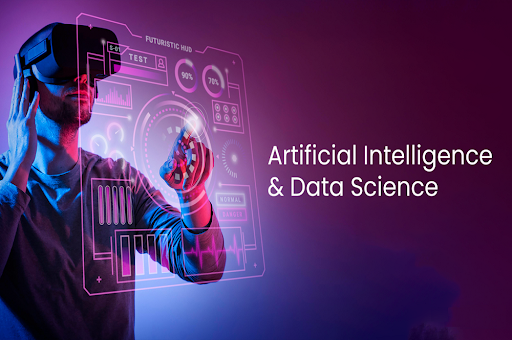Revolutionizing Finance-How Generative AI is shaping the Future of the Financial Industry
Posted on on May 30, 2024 | by XLNC Team

Artificial intelligence (AI) has slowly but surely made inroads into almost every industry, transforming operations and services. The impact of generative AI has been particularly significant in the financial sector. This technology is efficiently accomplishing a host of tasks, plus streamlining processes, and enabling financial institutions to make more informed decisions, reduce risks, and provide overall improved services and high-quality products to their clients. The article explores in detail how generative AI is shaping the future of the financial industry, we discuss algorithmic trading, customer service, risk management, and other crucial areas of operation.
The Rise of Generative AI
Decision-making and creativity have always been the realm of the human mind and a mechanical duplicate has so far been extremely difficult to build. However, that is no longer the case with Generative AI, which focuses on creating machines that can duplicate data, text, images, or other forms of content as it may be created by the human mind. The technology relies on neural networks that are inspired by the structure and function of the human brain. Deep learning, a subset of machine learning, has played an important role in advancing generative AI, enabling computers to learn and generate content without any human intervention.
The financial industry works with massive data and has happily adopted generative AI. Not only does this mean easy handling of large amounts of data, but reliable and fast decision-making, and the potential for automation. Let's look at how generative AI is revolutionizing different aspects of finance.
Algorithmic Trading
Algorithmic trading, algo trading or quantitative trading, is a process where computer algorithms are used to automate the execution of financial transactions. Generative AI has had a significant impact on this field by enabling traders to develop and deploy sophisticated trading algorithms which have the capacity to process vast amounts of data as well as make real-time decisions.
The ability of generative AI to identify complex patterns and trends in financial markets in algorithmic trading puts it miles ahead of any other technology, even humans. These algorithms can quickly analyze data patterns such as historical price data, news sentiment, and other relevant information that can help make predictions about market movements. Besides, it eliminates emotions and errors which can happen with a human trader. Plus generative AI-powered trading systems can execute trades with high accuracy and speed.
Furthermore, with new data learning, generative AI can adapt and evolve its trading strategies. It can continuously learn from new inputs and information to adjust its algorithms to variable and changing market conditions which makes it an unbeatable tool to keep trading strategies effective in dynamic environments.
Risk Management
When you talk about finance, you must address risk management. This vital aspect of the financial industry involves assessing and mitigating potential risks associated with investments, loans, and other financial activities. Generative AI is revolutionizing the process of risk management by enhancing the accuracy and efficiency of risk assessment models.
Besides standard risk processes, Generative AI models can also analyze huge amounts of data to identify emerging risks, make predictions and provide early warnings to financial institutions. By processing data coming from various data sources, such as news articles, social media, and economic indicators, these models can identify unusual patterns and potential threats which may never have been detected by traditional risk assessment methods.
On the other side of the spectrum, it can also make things easier for the borrowers. Generative AI can improve credit risk assessment by analyzing a borrower's financial history, transaction records, and other information to make almost error-free lending decisions. This technology can also help banks and financial institutions optimize their portfolios by identifying the optimal mix of assets so as to minimize risk while maximizing returns.
Customer Service and Personalization
Everything runs on customer service and Generative AI is transforming customer service in the financial industry by enabling chatbots and virtual assistants to provide more personalized and efficient support to clients. These AI-driven systems can understand natural language, answer queries, and assist with account inquiries, transaction history, and simple financial advice.
Moreover, generative AI can analyze customer data to create highly personalized experiences. By understanding a customer's financial behaviour, preferences, and goals, financial institutions can then tailor their product recommendations, investment strategies, and financial planning services to a particular client. This assists in cross-selling and creates upselling opportunities.
Fraud detection and prevention becomes simple with Generative AI. By analyzing transaction data and identifying unusual patterns, it can flag potentially fraudulent activities in real-time, helping financial institutions protect their customers from cyber threats.
Regulatory Compliance
Regulation in the financial industry is heavy and rightly so as there is a strong need to ensure transparency, protect consumers, and maintain the stability of financial markets. Compliance with these regulations is a complex and time-consuming process, often tied with extensive documentation and reporting.
Generative AI is streamlining regulatory compliance by automating many of these tasks such as generating reports, analyzing transaction data, and ensuring financial institutions adhere to regulatory guidelines. Besides, reducing or removing the risk of regulatory fines, this would also mean that the human resources can then focus on more strategic tasks.
Furthermore, generative AI can help financial institutions stay updated with evolving regulations. By monitoring changes in laws or regulations, it can interpret their implications, and suggest necessary amendments to compliance policies and procedures.
Portfolio Management and Investment Strategies
Portfolio management and investment strategies are areas where generative AI is making its presence felt. AI-driven algorithms can easily work through complex tasks such as analysing market data, economic indicators, and individual investor profiles to create optimal investment strategies.
One of the biggest advantages of generative AI in this context is that it can handle vast datasets and identify correlations that human analysts may miss. It can study the impact of global events, news and market sentiment, and economic trends on investment portfolios in real-time, helping investors make smarter decisions.
Plus, generative AI can automate the execution of investment strategies, enabling faster and more precise trading decisions. This automation not only reduces costs but also removes any emotional biases that can affect human investors.
Challenges and Ethical Considerations
While generative AI holds immense promise for the financial industry, it also presents potential challenges and ethical considerations. One of the main worries is the potential for algorithmic biases. If the training data upon which the AI model is made about lending, investment, and other financial services is biased, the outcomes can also be discriminatory. Financial institutions must take proactive steps to mitigate these biases and ensure fairness in their AI-driven processes.
Another challenge is the need for robust cyber security measures. As the reliance on AI for critical financial functions increases, the industry becomes more vulnerable to cyberattacks. Therefore, it is crucial that financial institutions must invest in cybersecurity technologies and strategies to protect their AI systems and the sensitive data they handle.
Lastly, the adoption of generative AI in finance will raise the crucial questions about data privacy and transparency. Banks and finance companies must keep in mind that keeping the customers informed about how their data is used will definitely be necessary and they must be allowed to control its usage. Plus, the use of AI in the highly sensitive financial sector may require regulators to format new guidelines and standards to govern its use.
Looking ahead
GenAI has the potential to revolutionize the financial industry by enabling better strategies and decision-making capabilities. However, it is important to understand the limitations and best practices for using this technology effectively. Businesses can leverage the power of Generative AI to stay ahead in an extremely competitive environment, with some checks in place as discussed.
Search
Latest Blogs
-
 Certified Ethical Hacker (CEH) Online Training Advance Your Cybersecurity Skills
Certified Ethical Hacker (CEH) Online Training Advance Your Cybersecurity Skills
-
 Which Scrum Master certification ASM, PSM or CSM
Which Scrum Master certification ASM, PSM or CSM
-
 Is Getting a Six Sigma Black Belt Worth It Pros ,Cons and Career Impact
Is Getting a Six Sigma Black Belt Worth It Pros ,Cons and Career Impact
-
 Generative AI Course 2025 for Software Developers and Engineers
Generative AI Course 2025 for Software Developers and Engineers
-
 Top Black Belt Certifications and Training for Quality Managers to Drive Organizational Excellence
Top Black Belt Certifications and Training for Quality Managers to Drive Organizational Excellence
-
 Data Science Syllabus and Subjects: What You Should Know Before Choosing a Course
Data Science Syllabus and Subjects: What You Should Know Before Choosing a Course
-
 What is the difference between ITIL and Scrum certifications
What is the difference between ITIL and Scrum certifications
-
 Six Sigma certification: The six-level path to Master Black Belt
Six Sigma certification: The six-level path to Master Black Belt


